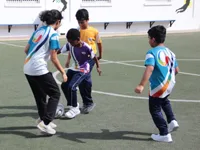Scholarships provide students with access to a world of opportunities. Lack of financial resources to pursue higher education isn’t the end, not if you qualify for an educational grant. You don’t need to drop out of school. If you want to earn a degree and receive training that will help you achieve the life you want, getting a scholarship is a step in the right direction. Here are a few tips on how to land a grant.
● Start Early
You’ll hear this often enough to know that it’s a must. Some grants require you to get ready for the scholarship an entire year or so ahead. That leaves enough time to prepare for the application process. However, many kids procrastinate, thinking they have an entire year to work on the application. Don’t fall for the same mistake. Start early. The sooner you finish the application, the sooner you can start on your other submissions.
● Try for Several Grants
Don’t put all your eggs in one basket. You’re already diving deep into the application process. Most scholarship programmes like the GIIS scholarships are the same in that they have an exam and then conduct interviews for the students who get shortlisted for the grant. Going through the process once will help you gain more confidence and that’s why it’s a good idea to keep trying. Even if your first submission gets rejected, don’t count that as a loss but as an added experience. Every bit helps you improve. Every failure is an opportunity to learn.
● Set Realistic Goals
If you think you’re going to spend every spare minute you have on applications, you haven’t got a realistic timeline in your head. Instead, give yourself some allowance and leeway. Breaks in between weeks, for instance, are good. They give you time to laze away on some weekends and then work on your application on the others. If you fill up your schedule to the brim with too many tasks, you won’t have time for yourself or for other things in your life and that’s not realistic. Your timeline will fail pretty quickly if that’s how it is. You might even give up sooner because of the burnout or application fatigue. Realistic goals will keep that from happening.
● Ask for Help
You have plenty of resources and people to get help from. Consider your teachers or counsellor. What about your parents or an older brother or sister? What about a trusted friend? Talk to them about your decision. They could provide you with helpful information and as in the case of friends and family, they could offer tireless support and love. Both make a difference and help you with your application.
● Proofread the Essay
When you finish with the personal statement essay, set it aside. Don’t immediately dive back in after a couple of hours, thinking that you’re ready to revise it for the better. Leave that for a day or so. While you wait, though, it wouldn’t hurt to send the piece to people you know and trust like friends, family, or your teacher. Ask for their opinion. Do they think you nailed the answer to the essay question? Did you tackle the subject with clarity? Were the points you wanted to make clear? Did the essay make excellent points? Do they have any suggestions on how to make your piece much better?
● Give Yourself a Break
If you submit an application and it gets rejected, don’t immediately start on the next one. Spend some time pinpointing where you went wrong. Did you submit the application too late? Missing a deadline means an automatic rejection. Did you follow the instructions? Were you even eligible for the programme? Go over your previous application. If you can start seeing the points where you made mistakes, then you can keep that in mind so you don’t repeat them in your next application.
● Keep Trying
You might fail a few times. There will be days when you wake up and you’ll feel that all your efforts and hard work are useless. There will be times when you’ll get discouraged and you’ll wonder if you’ll ever measure up or if your efforts will ever be enough. Keep trying anyway. Keep going. Consistent practice and effort make a difference. You might not feel it now but you’re improving with every application. When you finally look back on when you started, you’ll see how far you’ve come and how far you still need to go. Keep trying.
● Be You
When you write that personal statement essay, don’t try to be something you’re not. Don’t try to make yourself out to be someone much more impressive when that’s not really you. Be yourself. Your application will stand out so much more. Find the words to describe yourself in a way that will leave a strong impression on the screening panel. Write the kind of essay that makes them want to say: “I want to meet the mind behind this.” There’s no sense in trying to copy other people, thinking that they’re so much cooler or that they have a better chance at getting that grant. Be you, the best version of yourself and you’ll be more than enough for that panel.
● Follow Up
Make sure you receive a copy that they received your application. Some programmes send receipts. You wouldn’t want to spend weeks waiting for news of the scholarship only to find out that your application never reached the panel in the first place.
● Prepare for the Exam
Find out what areas the exam will cover. Scholarship tests are carried out every year. The topics and subjects remain the same, more or less. You can use that as a guide if the guidelines for the exam’s coverage aren’t out yet. That way, you can start studying. Even if some of the areas you studied end up not being in the exam, they helped you feel confident about your test-taking abilities, which also matters.
● Practice the Interview
Once you pass the exam, you’ll be invited to the interview. If you’re nervous, don’t worry. Even adults are nervous about their job interviews. It’s only normal. What you can do to reduce your nervousness or to make sure that nervousness doesn’t get in the way of you answering their questions is to do practice sessions. Research about the questions that they will likely ask you. Then think about your answers.
You don’t have to memorize sets of answers for those questions, since that will make them less spontaneous. But knowing the questions and answering them a few times until you’re confident and sure of what you want to say is the kind of practice that will help you shine in that interview.
Also Read: Tips for engaging Students in their Study
Some programmes send you guidelines on what to wear for the interview. Follow that. If there’s none or even when they say it’s casual, don’t go to that interview in your jeans. Slacks and a button-up shirt with a collar or a dress that reaches to your knees and comes with a suit jacket should make for a great impression. You don’t want them to talk about your attire. You want them to focus on what you have to say, on you and your answers.
























